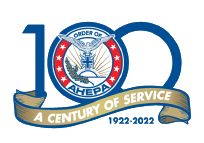Centenary of Greek Independence
United States Minister to Greece at the Ahepa Banquet at Athens
The present spectacle is one to rejoice the eyes of those who believe that "peace on earth and good will toward men" can be permanently established, because here we see a great throng of Greeks who have come back from the United States filled with the friendliest feeling for the land of their adoption, while at the same time their affection for the mother land rings as true as ever. But, whatever may be my reflections, and however glad I am to join in the welcome to this fine body from the United States, I do not intend to make a speech. Why should I think of doing so when you have among your guests the President of the Council, the most eloquent man that Greece has produced in the century of her recovered freedom, and whose deeds are even more eloquent than his words. When occasionally I am privileged to listen to Mr. Venizelos speak, and when at the same time I contemplate in thought the changes wrought under his direction in so short a time in this country, I am reminded of the answer that Demosthenes gave to an individual who asked him: "What is the first rule of eloquence?"
Said Demosthenes:
"The first rule is action." "And the second rule?" "The second rule is action" "And the third rule?" "And the third rule is action."
Then you have here also, my good friend Senator King, the representative of Utah in the United States Senate, one of the most gifted minds in that distinguished body, and of whom I heard it said in Washington just about one year ago. That he speaks on every subject that is brought before the Senate -- "and," continued my informant, "more astonishing than that, he speaks admirably on every subject."
Moreover, you have with you that great and proved friend of Greece, that brilliant lawyer and diplomat, Mr. Henry Morganthau. whose place is secure in the hearts of all Greeks who are familiar with her recent history.
Nor must I forget that you have here, as leader of this party, Mr. George Phillies, than whom I can think of no one more capable to give life and zest to such an enterprise as this. Mr. Phillies came out to my native town in Ohio last year and I heard him make a speech which was far and away the best speech of the evening; not only that, he spoke on the constitution of the AHEPA organization. I must maintain that anybody who can make a successful after-dinner speech about the constitution of a fraternal organization is capable of arousing enthusiasm by a speech on the multiplication table.
We have all heard, and shall hear still more, no doubt, about our Greek friends who have become good Americans and are effectively contributing to the maintenance of the cordial relations which exist between Greece and the United States.
You have now reached the home of your ancestors, and as you go through the beautiful countryside, as you look around and see the vestiges of the past, as you see the towns and villages only lately springing up, as you remark with what energy, tenacity and success the people of your own blood and your own generation have struggled, and are still struggling, against post-war problems of tremendous difficulty, and you will recall with pride and satisfaction the fact that they are of your own race, and you will say that the qualities which were characteristic of this country many centuries ago are the qualities of the men and women of our own time. Now we who are of the older stock of the United States would not wish you to feel otherwise. Indeed, we could not wholly respect you if you lacked in your appreciation of what has been accomplished on this soil. We believe that there is no necessary inconsistency between cherishing such thoughts as that, and the uncompromising and undivided loyalty which we expect from our citizens of recent date. We have had abundant proof that the loyalty is given to our institution and without grudging. We do not forget that during the great war upwards of 60.000 young men, in whose veins there flows the blood of Attica and the Peloponnesus and all the other provinces of Greece, gave the best that was in them to the army of the United States.
It lies within the power of this country by the exercise of a broad and enlightened policy and I do not doubt that it will do so, to retain the friendship and the affections of the 500,000 persons, more or less, who have gone from Greece to the United States, and to obtain from them that moral and material support which they on their side, need not hesitate to give, without in any manner entrenching upon their civic duty to the land of their adoption.
I welcome the presence of this large, organized body of its kind, to this country, as a happy omen, indicating still closer, and, if possible still better. and always more practically useful relations between Greece and the United States.
© Order of AHEPA
